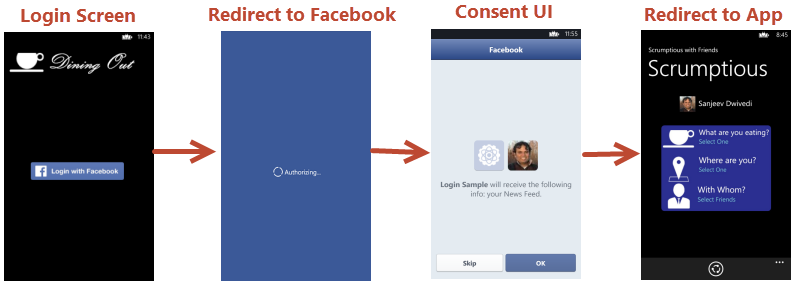Microsoft announces Facebook Login support for Windows 8.1 and Windows Phone 8 apps

It took Microsoft a while to persuade Facebook to produce an official app for Windows 8, but having finally got the social network onboard, the software giant is looking to tighten the ties further still.
The newly announced Facebook Login APIs on Windows 8/8.1 and Windows Phone 8 will allow developers to create apps that can access a user’s Facebook profile, and make it possible to share content, and post comments in-app, and also find friends to play games with. Make no mistake, with more than one billion people using Facebook to connect and share, this is a hugely important development for Microsoft.
"Today, as part of our ongoing partnership with Facebook to support rich development scenarios, we are very pleased to announce Facebook Login APIs on Windows 8/8.1 and Windows Phone 8," says Steve Guggenheimer, Corporate Vice President of Developer Platform & Evangelism at Microsoft. "Facebook Login for Windows 8 is ready to use in production applications, and for Windows Phone 8, Facebook Login is being launched today as a beta. We expect the beta period to last 60 days or less, and encourage developers to try it out and give us feedback".
According to Guggenheimer, Facebook Login "aligns with Microsoft’s ongoing strategy and commitment to make it easier for developers to build rich, connected apps that target both Windows and Windows Phone". Facebook Login will enable consumers to:
- Login to an app with a single click or tap, re-using the Facebook credentials stored on the device.
- Share high scores and other app events to Facebook.
- Engage in social interactions like playing games against friends or finding new opponents.
- Easily access and share photos within the context of an app.
Microsoft says a number of companies are already working on integrating Facebook Login into their apps, including Adobe (in Adobe Revel and Adobe Photoshop Express on Windows 8), Foursquare, and iHeartRadio.
Facebook Login is designed for use in apps, and not to replace Microsoft’s current identity system.
You can read the full announcement here.